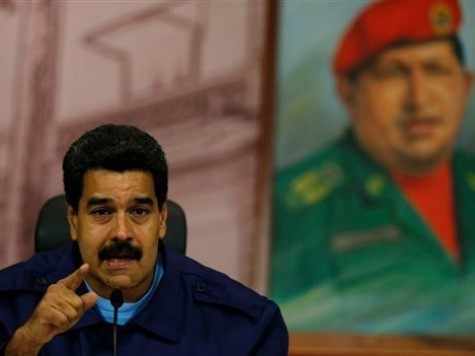In a surprising assessment that indicates the Venezuelan economy is doing worse than its socialist government has indicated, a Barclay’s report on the nation’s oil exports show that the nation has reduced exports of crude to the Caribbean by at least half, including exports to its greatest political ally, Cuba.
Miami’s El Nuevo Herald reports that Barclay’s has found that Venezuela only exported 200,000 barrels a day to Caribbean nations, down from 400,000 barrels a day in 2012. Most of the nations affected pay only a fraction of the market price for the oil through contracts with the Venezuelan government. The only exception is Cuba, which does not pay for the oil at all, but instead forces doctors, athletic trainers, and other state employees to work in Venezuela in exchange for the oil.
The Barclay’s report appears to interpret the reduction in exports as a sign that the Venezuelan government understands the dire economic situation that it is in, and that selling their oil at a reduced price has contributed significantly to the economic crisis. The report notes that deals with allied countries on reduced price crude have cost Venezuela “up to $50 billion.”
The damage may already be done for Venezuela, however. Venezuelan oil is currently worth half of what it was during March 2014 due to international drops in oil prices, in large part led by the fracking boom underway in America.
The financial company celebrates the reduction in this type of trade, noting in the report: “Oil agreements have been a heavy burden on Venezuela. These exchanges reached up to 400,000 bpd at their highest point in 2012, but Venezuela only obtained mayments for 200,000 bpd.”
The Nuevo Herald‘s Antonio María Delgado notes that not excepting Cuba from the reduction in shipments could be a significant political move, calling it “more important than that of other countries benefitting from the generosity of Venezuela, given that, unlike other countries in the Petrocaribe program, who at least pay a portion of the exports, the Havana regime does not pay in cash for the exchange.”
Political observers may also note that this reduction in oil exports to Cuba– exports essential to sustaining what remains of the Cuban economy after 56 years of communist rule– arrives at a time in which Cuba has agreed to accept political concessions offered by the Obama administration. Talks between Havana and Washington are ongoing despite the declaration by Cuban diplomat Josefina Vidal that “changes in Cuba aren’t negotiable,” and these talks are continuing despite Venezuela ramping up its campaign against the United States.
Shortly after the announcement of talks with Cuba, President Obama announced increased sanctions on the Venezuelan regime for its long record of human rights abuses, calling the rogue nation a “national security threat.” President Nicolás Maduro, who was already claiming that Vice President Joe Biden was personally plotting to overthrow him, has reacted with outright hysteria, alleging that President Obama is planning to bomb Caracas and forcing schoolchildren to write hate mail in droves directed at the White House. Maduro has gone so far as to attempt sending a message to President Obama in English:
In light of the escalating feud between the United States and Venezuela, Cuba– once perennially first in line to condemn America for taking any stand in favor of human rights– published some opinion pieces in state newspaper Granma. Castro has not halted talks with the United States in solidarity with Venezuela, nor personally said much about what Maduro appears to believe is a plan to colonize his country.
The timing of Cuba’s lukewarm response to sanctions against Venezuela and Venezuela’s reduction in free oil exports to Cuba is worth noting. Though a significant rift between the two countries is highly unlikely save an economic crisis strong enough to push one of the two countries towards a full alliance with America, this is the closest to disagreement these two socialist nations have had in public since before the Chávez era, and Venezuela’s desperation to keep its economy from collapsing while rejecting capitalism grows every day.

COMMENTS
Please let us know if you're having issues with commenting.